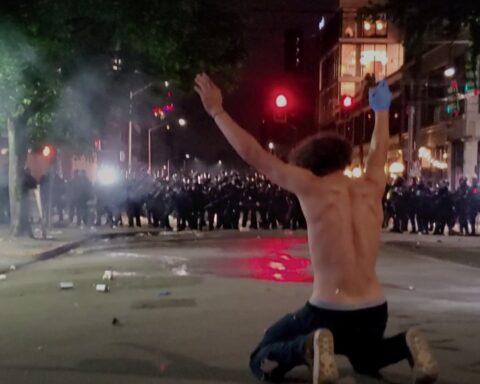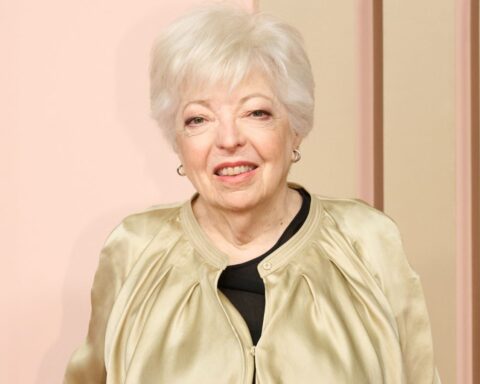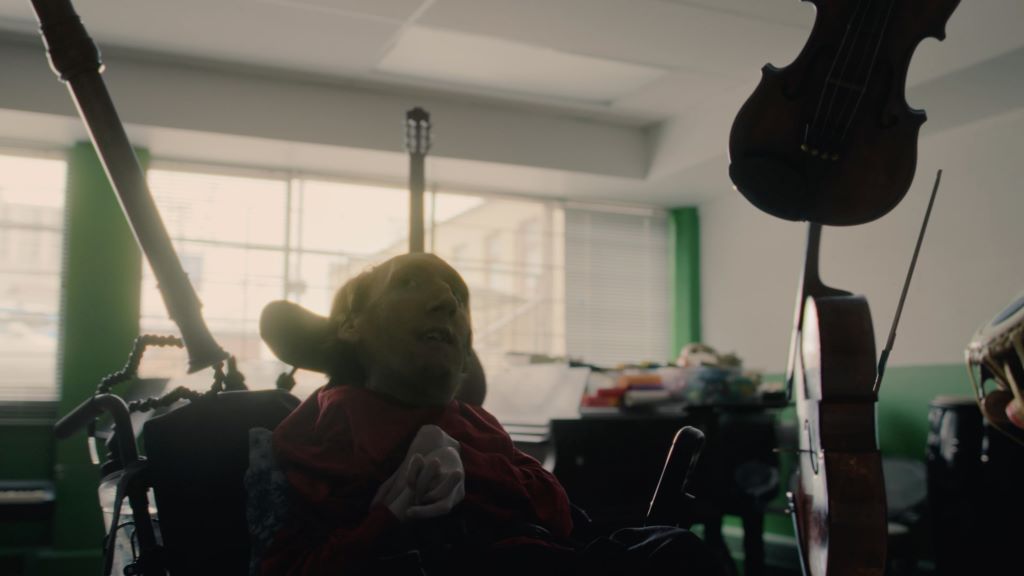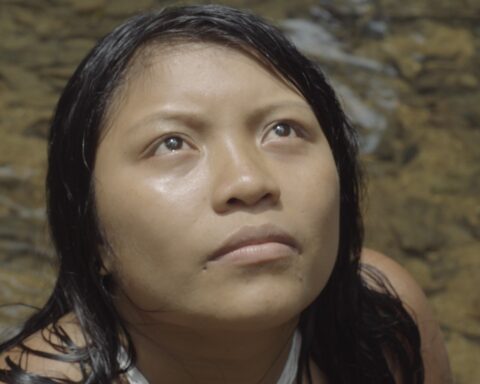Fragments of a Life Loved
(Italy, 95 min.)
Dir. Chloe Barreau
Programme: International competition
Imagine writing about photographing and filming every love affair you’ve had, sometimes including in its most intimate moments. Why would you want to? What would you do with the material? Chloe Barreau does not answer the first question. She just seems to have a compulsive need to create an archive of her love life. But her compelling documentary answers the second question in a way that celebrates the intensity of love and how a complex character lives life to its fullest.
We see Barreau herself only fleetingly. A neutral co-author interviews 12 of Barreau’s lovers, eight women and four men, who describe their conflicted feelings about their ex, often reading from the letters they exchanged. It’s a testimony to the force of Barreau’s personal impact that these subjects agreed to go in camera to tell their stories. You’d think Barreau’s obsession with her camera–some call it a fetish–always recording, would stand in the way of intimacy, but Chloe is so compelling that they all appear to cooperate happily. And as Barreau mines her old images, taken in Rome and Paris, the film pays tribute to two of the most romantic cities on the planet.
Mercurial, unpredictable, hard to pin down, Barreau emerges as a woman who is easy to love but not so easy to have as a lover. All 12 of her exes describe her as a woman of deep intensity, who comes on strong in a way they couldn’t resist. Barreau gets deeply involved, giving everything to her lovers, and then, more often than not, suddenly moves on, leaving her bereft partners gasping for breath. But in almost every case, she’s had a profound influence.
Through their connection with her they learn the art of living in the moment and making the most of every kiss, every source of beauty, every adventure. Each of them lights up at the memory of her, smiling shyly as they recall their initial attraction, or suddenly weeping when they remember the heartbreak she gave them. Chloe is undoubtedly a unique personality but any viewer who has experienced passion or betrayal can connect to these characters’ experiences, which is this film’s strength. The scenes recalling adolescent exuberance, where young people are carefree, dancing with abandon, while at the same time feeling uncertain about who they and what they want are particularly relatable.
All the subjects are deeply conflicted about their relationships with Chloe. Rebecca, for example, speaks lovingly about how she felt seen by Chloe’s love. “She saw something in me I didn’t see in myself,” which was a gift that gave Rebecca strength for her relationships to come. But then her face clouds. “She was a liar,” she says darkly.
Indeed, Chloe lied all the time. She told Anne that Anne was the first woman she’d slept with. Not true. She told almost all of them that they were her one and only love when she was having multiple affairs at the same time. Her insistence on keeping almost all her relationships secret tended to intensify their drama. Laurent remembers a sense of risk, describing his time with Chloe as a passionate skid. The bi-sexual Jean-Phillipe saw danger from the start. “From the moment she looked at me I knew I was screwed.” But he leapt in anyway.
Most of Barreau’s archival material is mined from the ’90s, when queer life was vibrant but not wholly accepted. This might explain why Chloe was so secretive about her lesbian relationships, but not entirely. Basically, she did not want her lovers to know she was sleeping around. But there are sequences where queer experience is handled with authenticity. Jean-Phillipe recalls how every gay person he knew moved away from their hometowns to big cities where queer spaces existed. Bianca’s sexual relationship with Chloe, her first with a woman, is a life-changing lust-filled revelation, which transforms her feelings about her body. “Has this been here all the time and I didn’t know?” she remembers asking herself in wonder. “How can this not be normal?”
Because many of the interviewees have not seen Chloe for decades, Fragments also turns into a meditation on memory, how it can be both sharp and unreliable. The subjects describe with uncommon detail the particulars of Chloe’s physical presence, her scent, how it felt to trace her waistline, for example. But Anne says in what constitutes a warning about the giving too much credence to old memories, “The past is more mysterious than the future.”
A skeptical viewer may insist that it’s still Barreau herself who is controlling the narrative, mining her archive and editing footage as she sees fit. But credit her with a portrait that’s hardly hagiography. She is a force both positive and negative, making her lovers feel intoxicated by her energy, yes, but as one of them puts it, “When you’re drunk, it always ends badly.”
Fragments of a Life Loved screens April 30 and May 2 at Hot Docs.












